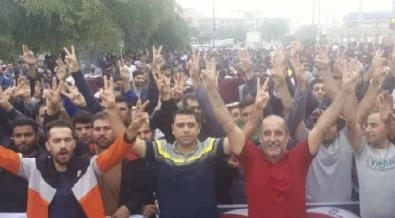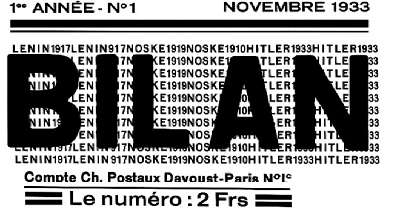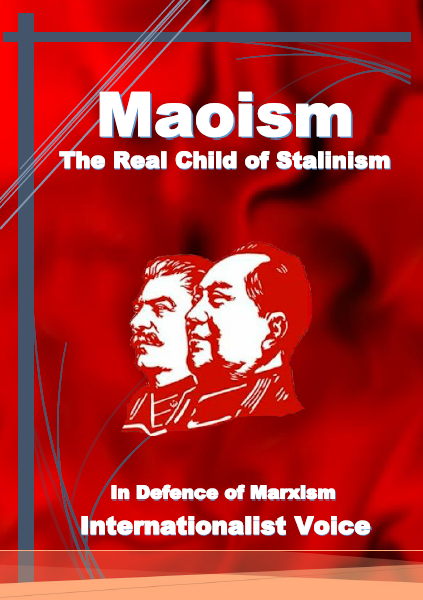Fidel Castro was a Hero of the Bourgeoisie!
Fidel Castro, the Cuban leader, died on 25 November 2016 at the age of 90. Castro’s death was met with headlines such as “the death of the leader of the Cuban communist revolution”, “the death of the leader of the communist government of Cuba” and so. The left of capital praised the “legendary” character of the commander of the revolution and touched on his contributions to the development of socialism in Cuba, on Castro’s anti-imperialist struggles and on his internationalist efforts in the struggle for socialism. Even the radical elements on the left of capital, which, until yesterday, were critical of Castro, brought honour to the ideas and services of the Cuban revolutionary commander. The anti-imperialist and, particularly, the anti-American positions of the commander and his unwavering resistance were praised, especially in light of the fact that the CIA had carried out more than 600 attempts to destroy him. Against the entire demagogy, the question that arises is whether the Cuban communist revolution actually took place. Was Cuba socialist? Was the commander a revolutionary?
In 1953, Fidel Castro attempted to overthrow the Batista regime but failed and was imprisoned. After his release from prison, he went to Mexico where he organized a guerrilla group. The political positions of the guerrilla group were highly inconsistent and contradictory. Members of the group arrived in Cuba via boat and organized a guerrilla struggle. The US had disagreements with Fulgencio Batista and the US was accused of corruption and of undertaking an arms embargo in respect of the Batista regime. On the one hand, the guerrillas had the support of the peasantry and, on the other hand, they indirectly had the help of the US because the latter had imposed an arms embargo on the Batista regime. Finally, the guerrillas entered Havana on 2 January 1959 and with the escape of Batista, the new regime, the regime of the commander, came into power.
Castro initially insisted that he was not looking for communism or Marxism but was looking for democracy and social justice. The US was among the first countries to immediately recognize the new government. Three months after the arrival of the new government, Castro went to the US and met with Nixon at the White House. However, some time later, the US was in disagreement with the new regime. Castro gradually broke ties with the US and, finally, two years after the arrival of the new regime, relations with Cuba were severed. This brought Cuba closer to the Eastern bloc, at the head of which was the Soviet Union, and, in the process, turned Cuba and Castro into one of the Cold War actors. After the arrival of the new regime, the old Communist Party joined the 26 of July Movement (Movement of Castro) that formed the United Party of the Socialist Revolution in Cuba. Finally, in 1965, six years after the arrival of the new regime, the United Party of the Socialist Revolution metamorphosized into the Cuban Communist Party after implementing a state capitalist party dictatorship.
Contrary to the demagogy of the right and left currents of capital, a social revolution did not occur in Cuba. The regime change took place not through parliament, a common tradition in the capitalist metropoles, but through appropriate guerrilla insurgency procedures in the capitalist periphery. By changing, the regime but still continuing with capitalism and wage slavery, and despite its anti-imperialist gestures, Cuba is an imperialist country. In 1959, the proletariat had not yet recovered from the defeat of the wave of world revolution; the proletariat remained in the black-height period of the counter-revolution. In such circumstances, communist revolution was not possible.
Guerrilla warfare is alien to the traditions of proletarian struggle. In the class struggle, the proletariat defines and will advance the goals and methods of its struggle through a workers’ committee and through general assemblies. Traditionally, the representatives in the general assembly can be appointed and removed at any time and are directed by army staff (staff guerrillas), a process that is alien to the traditions of proletarian struggle. In the class struggle, the proletariat creates its revolutionary vanguard organization that consists of the revolutionary minority under the right conditions to create the internationalist party, without which it is impossible for the communist revolution to succeed. In the class struggle of the proletariat, all aspects of the class struggle, including class violence, are conscious and collective. Wars of liberation and guerrilla warfare are part of the infantry battalion of imperialist foreign policy and, if the movement takes power, it will inevitably become an imperialist power.
Once again, Castro’s death was an excuse for the relaunch of the bourgeois ideology of the anti-communist campaign against socialism and communism, which, again, launched a campaign to drag communism through the mud. Once again, Cuba was declared socialist and capitalist barbarism was defined as socialism. With regard to wage slavery, it was declared that any effort to establish a classless communist society would lead to dictatorship, misery and generalized poverty and is, therefore, meaningless.
Against the dirty campaign of the ideologues of the right and left of capital, it should be audibly announced that Castro and Cuba do not have any correlation to the proletarian class struggle and socialism, internationalists must rise to the defence of communist values against the dirty campaign.
Socialism is not possible through guerrilla warfare but is possible by challenging capitalism through the international struggle of the working class as a social class and through the communist revolution at an international level. With the death of Castro, the bourgeoisie has lost one of its heroes but at the forefront of the class struggle of the proletariat, the ideal communist society has achieved legitimacy.
Internationalist Voice
2 December 2016















